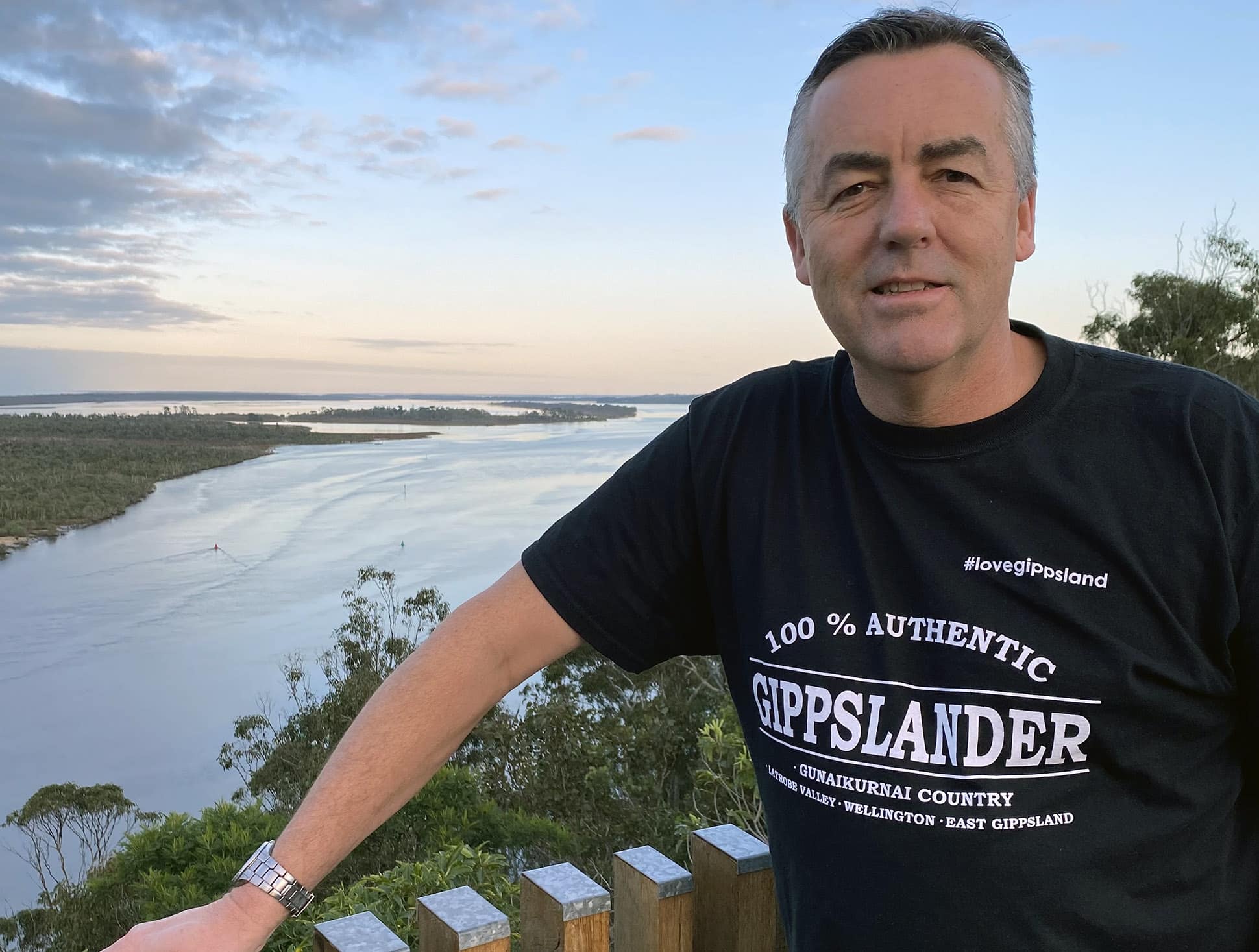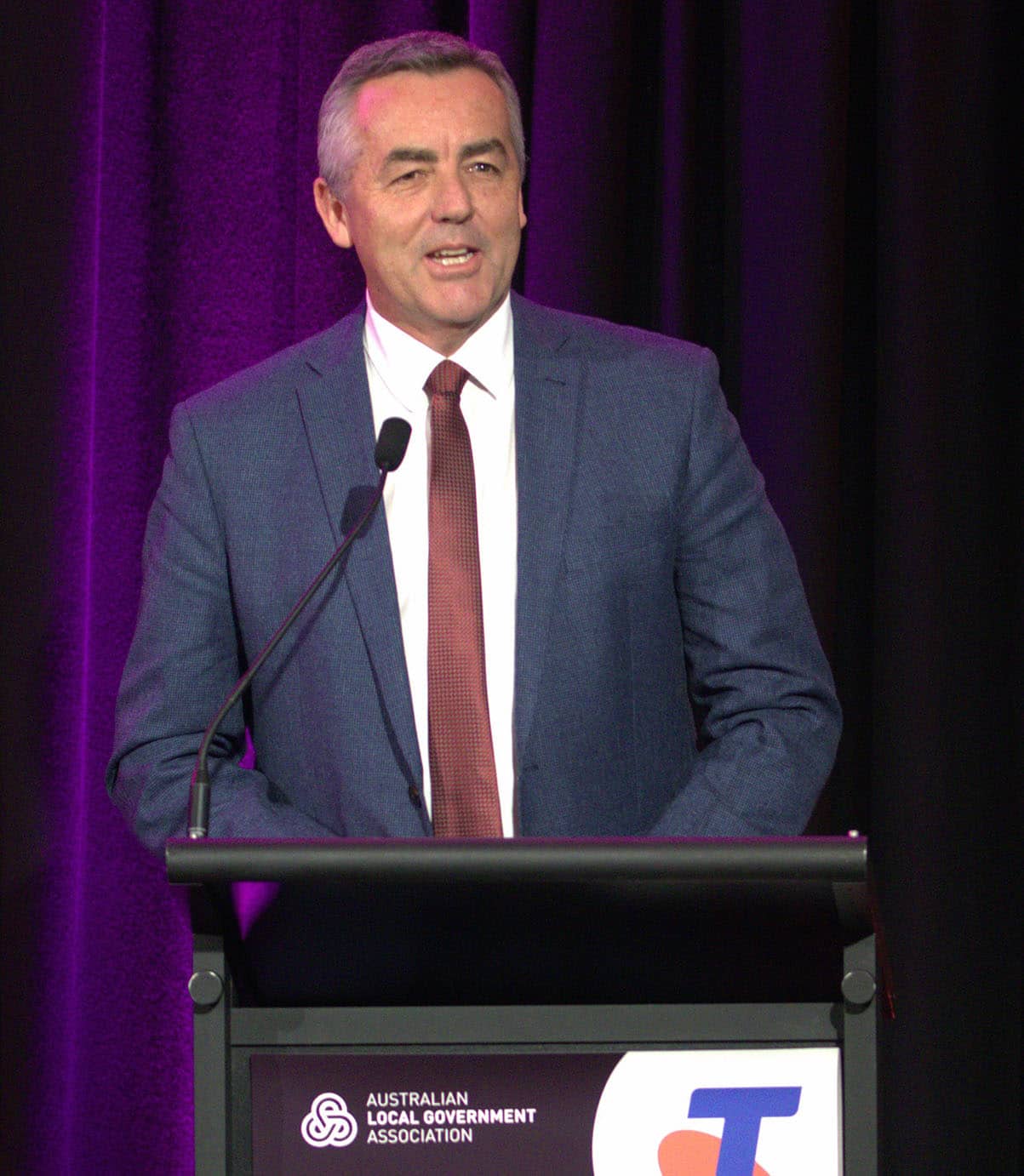
ALGA News sat down with Shadow Minister for Local Government the Hon. Darren Chester to discuss his views and priorities for local government in Australia. The Federal Member for Gippsland also reflects on his experiences as a former Minister for Local Government and outlines his passion for improving the liveability of regional communities.
ALGA: Mr Chester, as the Federal Shadow Minister for Local Government, what do you see as the top three issues affecting councils across Australia?
Darren Chester (DC): There’s an obvious need to ensure the financial arrangements between the Federal Government and Local Government provide long-term viability, and also deliver the funding certainty that respects the capacity for local decision-making. We need to ensure that other levels of government don’t get away with cost-shifting or adding responsibilities to local councils, without properly funding the services and infrastructure required.
I also believe we need to invest in the capacity of councils to secure and retain a skilled workforce to deal with the increasingly complex tasks and we could be doing more to promote local government as a great career choice. Finally, helping councils improve the safety of the road network to reduce road trauma is a critical issue given the massive social and economic impacts of crashes on local roads.
ALGA: How do you see the current level of federal funding and support for local government and what could be improved?
DC: I’m very concerned by the current government’s rhetoric surrounding programs like the highly successful Local Roads and Community Infrastructure Program (LRCIP). Various Ministers have claimed they support LRCIP but there is no commitment to future funding. I’m a huge believer in localism and decentralised decision-making, which means the Federal Government needs to allocate funds and trust councils to make good judgment calls on the priorities in each region.
We need to move away from only offering competitive grants programs for community infrastructure and commit to a long-term allocative model which guarantees a revenue stream and provides certainty for councils, in much the same way as existing sub-programs like Roads to Recovery have worked for more than 20 years.
ALGA: As a former Minister for Local Government in the Turnbull Ministry, what did you learn about the sector during your time in Government? What has changed?
DC: As a Minister and local MP, I’ve worked closely with local councils in Gippsland and across Australia which has shaped my personal view that it offers the best mechanism for delivering funding for local community improvements in a timely and cost-effective manner. Having lived through several natural disasters, I am acutely aware of the role local government plays in emergency situations and I’m concerned that not enough resources are directed at preventative measures and increasing the resilience of existing infrastructure to deal with changed climatic conditions.
From a regional perspective, the big change in work-from-home and improved connectivity is driving a renewed interest in families moving away from the city which offers some huge opportunities. The Federal Government needs to trust local councils with a guaranteed funding stream that improves the liveability of regional communities to help attract and retain a skilled workforce.
ALGA: As the Federal Member for Gippsland, what local issues are affecting your communities and how can these be addressed? How much involvement do you have with your local councils?
DC: Gippsland is dealing with the combined impacts of energy transition in the Latrobe Valley and the appalling State Government decision to ban the native hardwood timber industry. These threats to traditional jobs are creating a level of uncertainty and I work closely with my three local councils to advocate for funding and deliver new opportunities in our region.
The broader issue of connectivity in all its forms – road, rail, air, sea and telecommunication links – is the biggest concern in terms of meeting modern expectations for businesses and families, and competing with other regions which may offer better services. I’m a huge supporter of investing in the infrastructure which helps to build the visitor economy because it inevitably provides opportunities for locals to enjoy the region they call home.
ALGA: What do you see as the main priorities for improving community infrastructure?
DC: Apart from the massive shortfall in road maintenance funding, we need to see a model for investing in community infrastructure which isn’t dependent on the electoral cycles of state and federal governments. The beauty of LRCIP was its allocative approach which allowed councils to set local priorities and deliver community infrastructure beyond their usual capacity.
Investing in community infrastructure such as sporting facilities, boardwalks, tracks, trails and skate parks is a great way to encourage a healthy, active lifestyle for all ages. The long-term dividend will be seen in the health budget!
ALGA: How do you like to relax and unwind after a busy sitting week of Parliament?
DC: Away from the office, I’m a keen runner and dog enthusiast so I get to indulge both passions by exercising with my five-year-old Labrador-cross called ‘Marlo’. If I can find the time, I enjoy fishing and golf or escaping in our caravan for a camping trip with my wife Julie. Our four children are all adults now but whenever they are in town, it normally involves me taking over the kitchen for a family feast of some description!
I’m a keen traveller and have a lifetime ambition to become a ‘grey nomad’ so I declare my conflict of interest in wanting to see better roads, rest areas and visitor facilities for local councils throughout Australia.



